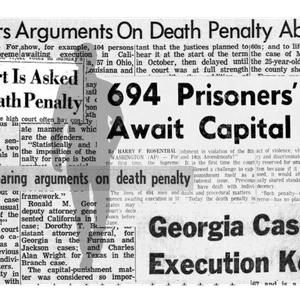David Baker has written a thorough and insightful analysis of how the death penalty in the U.S. has been used against Native Americans. In “American Indian Executions in Historical Context,” Baker places the execution of Native Americans within the history of colonialism, slavery and the conquering of indigenous tribes in early America. The article traces these developments to the current era, about which the author concludes:
The trend in American Indian executions during the present historical period of self determination shows a significant increase in Indian executions during the 1990s. The 15 American Indian executions since 1973, in many cases, accent the problems endemic to contemporary capital punishment schemes — increasing rates of voluntary executions, botched executions, racist prosecutorial discretion, and ineffective capital defense counsel. In these cases, all the victims were white and the American Indian defendants largely suffered from severe alcoholism, drug abuse, and mental illness. In most cases, defendants came from predictable backgrounds of abject poverty, alcoholic and abusive parents, and violent family histories.David Baker is an Associate Professor of Sociology at Riverside Community College in California. He has also collected a comprehensive list of all executions of Native Americans in U.S. history.
(20 Criminal Justice Studies 315 – 373 (No. 4, December 2007)). Read the article . See Race .
Citation Guide
History of the Death Penalty
May 15, 2024


